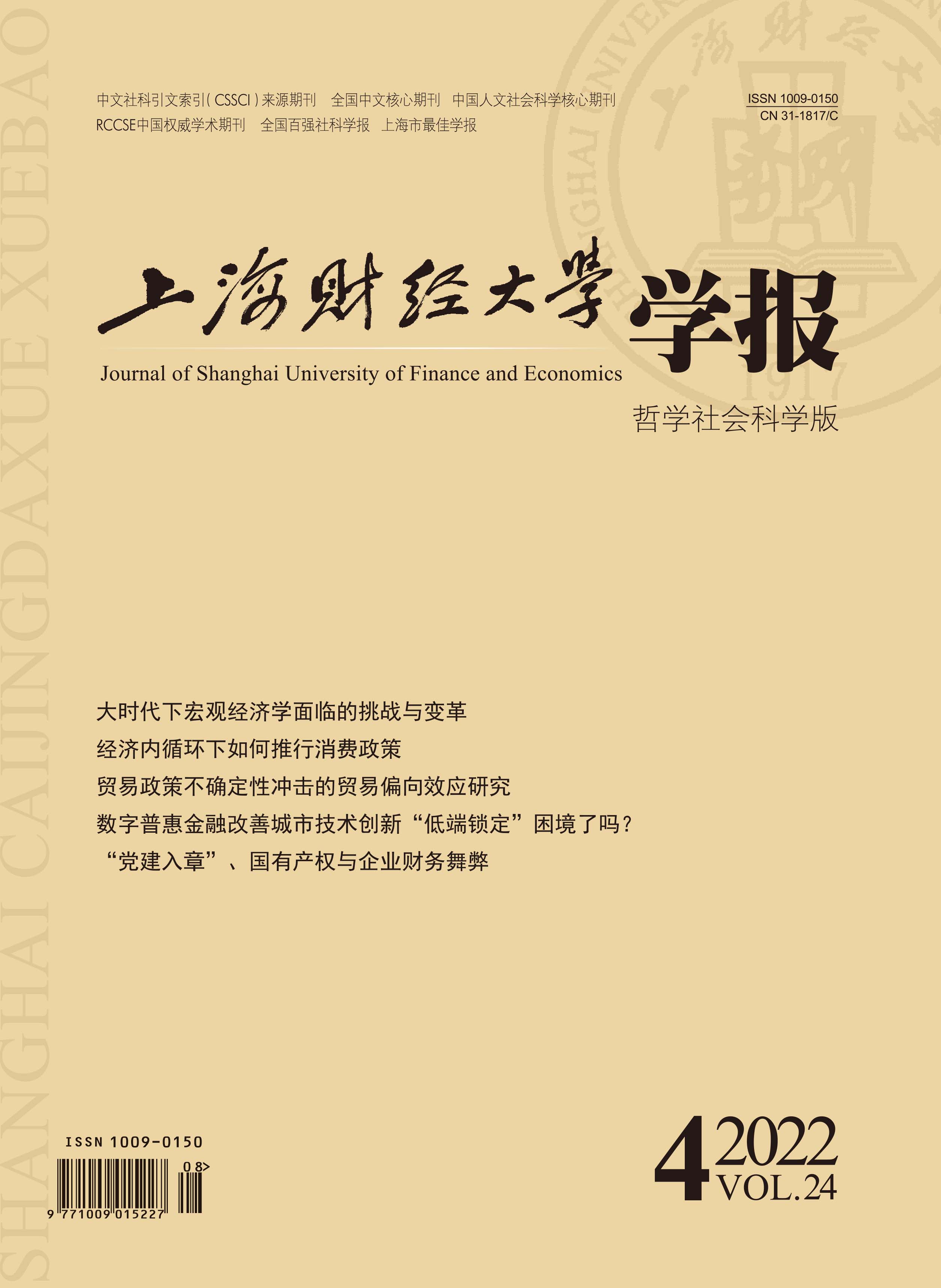In recent years, trade policy uncertainty has increased significantly. It is worth paying attention to understand the impact of trade policy uncertainty on the structure of international trade. Based on the bilateral tariff data and anti-dumping investigation data from 1995 to 2016, this paper constructs an index of trade policy uncertainty applicable to trade in services based on the research results of Handley & Limao (2017) and Azzimont (2019), and analyzes the impact of trade policy uncertainty on the structure of international trade. The empirical results show that: First, trade policy uncertainty changes the structure of international trade. Although trade policy uncertainty reduces trade in goods, it significantly promotes trade in services. A 10% rise in TPU leads to a 0.473% increase in service exports. This means that the impact of trade policy uncertainty significantly changes the structure of international trade, and produces a trade bias effect. Second, the sector-specific study shows that TPU has no industry heterogeneity in its impact on service exports, and has a positive effect on productive service trade, consumer service trade and public service trade. Third, service exports decrease with the expansion of space and increase with the increase of time difference. The partial regression coefficient of the former is -0.066%, and the partial regression coefficient of the latter is 0.02%. The time difference provides arbitrage space for trade in services, and countries can carry out service outsourcing with countries with large time difference to reduce the cost of trade in services. Fourth, TPU affects service exports through productivity, institution and innovation. When trade policy uncertainty increases, productivity improvement and market-oriented reform will effectively promote service exports. When trade policy uncertainty is reduced, increased innovation will boost service exports. This paper reveals the trade bias effect of trade policy uncertainty, and provides a new idea for China to cope with the rise of TPU and develop trade in services. With the outbreak of COVID-19, uncertainties in global trade policy have further increased. We should adapt to the international macro environment and shift the focus of trade, and not be limited to the development of trade in goods. We should shape new dynamic comparative advantages, strive to change the structure of export trade, vigorously develop trade in services, gradually reverse China’s trade deficit in services, and realize the dynamic optimization of trade structure. We should focus on the development sequence, find the optimal path for the growth of trade in services, and give priority to trade in productive services such as transport services, communications, computer and information services, intellectual property rights royalties, and financial services.
 / Journals / Journal of Shanghai University of Finance and Economics
/ Journals / Journal of Shanghai University of Finance and EconomicsJournal of Shanghai University of Finance and Economics
LiuYuanchun, Editor-in-Chief
ZhengChunrong, Vice Executive Editor-in-Chief
GuoChanglin YanJinqiang WangWenbin WuWenfang, Vice Editor-in-Chief
The Trade Bias Effect of Trade Policy Uncertainty Impact
Journal of Shanghai University of Finance and Economics Vol. 24, Issue 04, pp. 33 - 46,77 (2022) DOI:10.16538/j.cnki.jsufe.2022.04.003
Summary
References
Summary
Cite this article
Chen Qifei, Zhang Chen, Yue Zhonggang. The Trade Bias Effect of Trade Policy Uncertainty Impact[J]. Journal of Shanghai University of Finance and Economics, 2022, 24(4): 33-46.
Export Citations as:
For




 5520
5520  4725
4725

